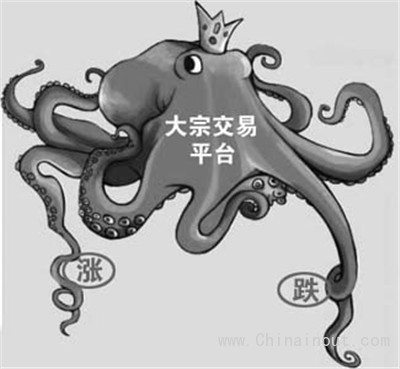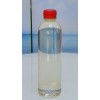随着亚洲股市复苏,急于将获利套现的投资者以“大宗交易”方式抛售的股票达到了创纪录规模。
投资者们正利用活跃的市场氛围及流动性的增加大手抛售股票。2015年迄今,以大宗交易方式换手的中国及印度公司股票的价值接近180亿美元,是去年同期的三倍多。
根据摩根士丹利资本国际亚太指数(MSCI Asia Pacific Index),今年以来亚洲股市已上涨13%,相比之下标普500指数(S&P 500)涨幅只有2.9%。中国基准指数上证综指(Shanghai Composite)已跃升36%。香港恒生指数(Hang Seng)本月已上涨13%,今年迄今涨幅为19%。
卖家以私募股权集团为主。本月,美国凯雷集团(Carlyle Group)以4.25亿美元卖掉了手中剩余的海尔(Haier)股票。与此同时,中国弘毅投资(Hony Capital)抛空23%石药集团(CSPC Pharmaceutical)股份,套现13亿美元。在香港上市的海尔是一家中国家电制造商,而石药集团则是一家中国制药商。
在私募股权集团之外,还有数宗企业股票出售及私有化案例,比如印度政府就卖出了印度煤炭公司(Coal India)价值37亿美元的股份。
上周,日本第一三共株式会社(Daiichi Sankyo)以32亿美元的价格,抛售了所持的印度太阳制药(Sun Pharma)的8.9%股份。此外,雪佛龙(Chevron)以36亿美元卖出其持有的澳大利亚加德士(Caltex)半数股份,成为悉尼股市上交易金额最大的大宗交易。
活跃的市场情绪也促使企业考虑通过新股发行来利用当前行情。银行则争相将计划已久的首次公开招股(IPO)提前,以满足投资者的兴趣。
巴克莱银行(Barclays)亚太区大宗交易发起部门主管杰克•易(Jack Yee)表示:“对于私募股权集团,只要估值合适,往往能很快做出决定,没有各种监管文件的问题和董事会决策程序的问题。企业通常需要更长时间才能做出决定。不过我认为,很快你就会看到部分企业采取这种行动。”
对于大宗交易的买方来说,吸引他们的是能以略低于公开市场的价格买入大量股份的机遇。
高盛(Goldman Sachs)日本以外亚太区融资集团联席主管庞建忠(Jonathan Penkin)表示:“(全球)投资者对中国大盘股的持有量依然不足,大宗交易将成为人们增加相关敞口的途径之一。”
不过,这轮抛售大潮正在改变市场动态,迫使银行家为大宗交易寻找新型买家。通常而言,基金经理是大宗交易的最大买家,而且许多基金错过了中国内地股市的反弹以及最近香港股市的反弹。
香港的银行家们是不那么典型的买家,但他们披露正从企业和本地区富豪手里收购股票,只为赶上这波行情。中国的保险公司较普遍地参与大宗交易,尤其在购买中国股票方面。
大宗交易对偏好快速交易的投行也是一大福利。在极端情况下,投行会在收市后出价竞买大宗证券,在第二天开市前完成交易。
一位地区性投行业务主管表示:“我情愿派两三个人花两三天时间紧跟一笔大宗交易,也不愿让四个人在一只IPO上守半年,而且后者利润还不确定。”
银行通常根据最近的市场价对大宗证券报出折扣价,期待之后能以较小的折扣卖出,以赚取差价。虽然这些交易的短期性质限制了价格波动的风险,但一次出乎预料的下跌仍可能让银行亏本。
最快的交易往往来自私募股权集团,而交易额越大交货时间越长,比如第一三共株式会社和雪佛龙的大宗交易。
庞建忠表示:“长期关系比竞标更管用,它会促成更合适、老实说也更有利可图的交易。”
据银行家们表示,大宗交易的激烈竞标已缩小了这类交易相对公开市场价格的折价幅度,对银行来说,这增加了交易出问题的风险。
德意志银行(Deutsche Bank)亚洲股权资本市场团队负责人赫曼特•沙贝瓦尔(Hemant Sabherwal)说:“从风险角度来看,银行或许觉得在出价方面可以比正常状态下更大胆一点,因为它们知道在目前的流动性环境下,哪怕对市场估计不正确,也有较多机会能够快速卖出。”
流动性状况和总体市场氛围意味着目前应该只有少数银行还持有亏损仓位。如果有迹象表明企业准备利用这个市场,只会进一步增加信心。(中国进出口网)
Investors are selling large blocks of Asian shares in record amounts as they rush to book profits from resurgent markets.
Nearly $18bn worth of stock in Chinese and Indian companies has changed hands in “block trades” in 2015 so far — more than three times the amount in the same period last year — as shareholders take advantage of buoyant markets and improving liquidity to offload large stakes.

Asian stocks have gained 13 per cent this year, according to the MSCI Asia Pacific index, compared with 2.9 per cent for the S&P 500. China’s benchmark Shanghai Composite has jumped 36 per cent while Hong Kong’s Hang Seng index added 13 per cent this month for a 19 per cent gain so far this year.
The sellers’ charge has been led by private equity groups. This month Carlyle Group of the US sold its remaining stake in Hong Kong-listed Haier, the Chinese white goods maker, for $425m while China’s Hony Capital raised $1.3bn from unloading a 23 per cent holding in CSPC Pharmaceutical, a drugmaker.
Supplementing the private equity sales are company sales and privatisations, including the Indian government unloading $3.7bn of shares in Coal India.
Last week, Japan’s Daiichi Sankyo sold its 8.9 per cent stake in Sun Pharma for $3.2bn while last month, Chevron’s $3.6bn sale of its half-stake in Australia’s Caltex became Sydney’s biggest block trade.
The buoyant mood is also encouraging companies to consider tapping the market themselves with new share offerings, while banks are scrambling to bring forward long-planned initial public offerings to meet investor interest .
“If you’re private equity, you can often make quick decisions whenever the valuation is right without the issues of regulatory filings and board decisions,” says Jack Yee, head of block origination for Asia-Pacific at Barclays. “Companies generally take longer to make a decision but I think you’re going to see some make that move quite soon.”
Block trade buyers are attracted by the opportunity to buy big shareholdings at slightly cheaper prices than on the open market.
“[Globally] investors remain underweight the largest stocks in China and the block market will be one of the ways people can add exposure,” says Jonathan Penkin, co-head of Goldman Sachs’ financing group in Asia-Pacific excluding Japan.
However, the surge in sales is changing the dynamics of the market, forcing bankers to seek new types of buyers for the blocks. Fund managers are typically the biggest buyers of blocks, and many missed part of the rally in Chinese stocks in both the mainland and, more recently, in Hong Kong.
Less typically, Hong Kong bankers report buying from companies and the region’s wealthy tycoons, simply interested in playing the market. Chinese insurers have been more prevalent, particularly buying Chinese stocks.
Block trades have also proved a boon for investment banks that prefer rapid-fire deals. In the most extreme cases, bankers will bid for a block after the market closes and expect to complete the sale by the open the next day.
“I’d far rather have a couple of guys tied up on a block trade for perhaps a couple of days than put four on an IPO for six months wher the profit isn’t certain,” says one regional investment banking head.
Banks typically bid for blocks at a discount to the last market price in the expectation they will sell them on at a smaller discount, taking the spread as their fee. While the short-term nature of the deals limits the risk of market moves against the bank’s price, an unexpected market fall can still leave a bank with a lossmaking position.
The quickest deals tend to come from private equity while bigger ones, including the sales by Daiichi and Chevron, have longer lead times.
“Longstanding relationships are coming into play more than competitive bidding which makes for a better and frankly more profitable deal,” says Mr Penkin.
Fierce bidding for the blocks has narrowed the discount to the market price, according to bankers, increasing the danger of a deal turning sour for the bank.
“From a risk perspective, banks may feel able to be a little more aggressive in pricing than normal, knowing the liquidity environment is such that there is more chance of being able to trade out quickly even if you get the market wrong,” says Hemant Sabherwal, director in Deutsche Bank’s Asia equity capital markets team.
Liquidity and the general market mood means few banks, if any, are yet thought to have been left holding lossmaking positions. Any signs of companies preparing to tap the market is only likely to increase confidence further.








